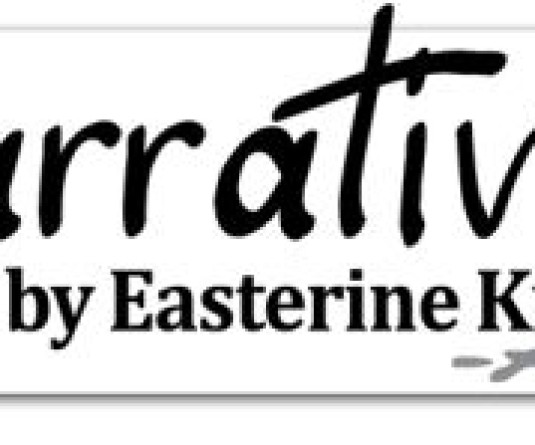
Vizokhole Ltu
Senior Research Associate (NESRC)
On May 29th 2025, a rally led by the 5-Tribes Committee on Review of Reservation Policy (CoRRP), was held across eight districts: Dimapur, Kohima, Mokokchung, Wokha, Tseminyu, Zunheboto, Chumoukedima, and Niuland to demand the review or reform the Nagaland’s 48-year-old reservation policy. The rally was organised by the apex tribal bodies of five Naga tribes – Angami Public Organisation, Ao Senden, Lotha Hoho, Rengma Hoho, and Sumi Hoho – who have united under the banner of CoRRP to demand what they describe as justice, fairness, and equal opportunity in public employment and education. CoRRP demanded that the existing job reservation policy which has been in effect since 1977 either be scrapped, or the unfilled reserved positions be reallocated specifically to the five major tribes (The Economic Times, 2025). The August 9 resolution adopted by the CoRRP and allied tribal hohos in Kohima alleged that “the existing Nagaland Job Reservation Policy, in place for 48 years, has unfairly deprived so-called advanced tribes of employment opportunities” (Eastern Mirror, 2025).
The Reservation Policy was introduced in 1967 and implemented in 1977, when the state implemented 25% reservation in non-technical and non-gazetted posts for seven tribes, which were identified as ‘backward tribes’ in terms of education and economy, and also having insignificant representation in the services for a period of ten years. Currently, the reservation stands at 37%, with 25% earmarked for the six Eastern Naga backward tribes and 12% earmarked for other four backward tribes (Morung Express, 2025). Meanwhile the Eastern Naga Students’ Federation (ENSF) and the Eastern Naga Peoples’ Organisation (ENPO) has demanded for 45% reservation, stating that the reservation policy is not being implemented in true spirit (Morung Express, 2025).
This is where a possible understanding can emerge: the reservation system could be reformed to reflect the proportion of government employment in relation to the population size of each tribe. For instance, if, as stated by K. G. Kenye, Minister of Parliamentary Affairs, advanced tribes hold up to 64% of government jobs while backward tribes account for only 34%, it further strengthens the case for affirmative action. However, if the figure is indeed “wildly imaginary” and far from reality, as claimed by CoRRP Member Secretary GK Zhimomi(Nagaland Tribune, 2025), then the actual figure should be disclosed and used as the central argument to review the reservation policy. In either case, it calls for a review. This is where mutual understanding could begin to take shape.
With a wide range of layered grievances emerging from various sections of the Nagas regarding the right to opportunities, it is imperative that authorities and stakeholders come together for open and inclusive dialogue. Instead of holding firm to rigid demands, all parties must be willing to engage in meaningful discussions and find common ground through dialogue. Progress is, at its core, a collective effort – when even one group is left behind, the development of the entire Naga society is hindered. True progress can only be achieved when our shared path is guided by equity, fairness, and mutual understanding. While it may be easy to assign blame to each other, we must not lose sight of the systemic and layered exclusions that persist within our society. One of the visible indicators of this inequality lies in the stark disparities among Nagaland’s districts, particularly in terms of development and access to essential infrastructure.
Due to their historical context, proximity to administrative hubs and their strategic locations, certain districts – such as Kohima, Dimapur, Chumoukedima, Mokokchung, amongst others – have received disproportionate investment and attention over the years. As a result, they have come to house most of the state’s well-functioning administrative bodies, educational institutions, healthcare facilities, and commercial centers. Conversely, other districts remain marginalised, lacking in even basic infrastructure such as reliable roads, transport systems, schools, and hospitals.T his uneven distribution of development has direct implications for socio-economic opportunities, widening the gap between the more developed and underdeveloped regions, and reinforcing existing inequalities.
Addressing these imbalances requires more than just rhetoric – it demands deliberate and equitable policy interventions that ensure all regions have a fair chance at growth and opportunity. Drawing from such context, the argument based on ‘meritocracy’ is flawed, particularly in the context of community-based Naga society. Meritocracy as argued by American political philosopher Michael Sandel, while seemingly fair, is a source of inequality, division, and resentment. It creates hubris among the winners and humiliation among the losers, corroding social solidarity and the common good. While uplifting in theory, this overlooks structural inequalities and sends the message that those who don’t rise are to be blame. This sense of being looked down will eventually fuel populist movements and resentment, as in evident in the case of the demand for a separate frontier state by ENPO. We need to recognise the role of luck, family background, social circumstances, and political networking in success. This recognition will foster humility among the successful and compassion towards those who struggle in order to reimagine the common good.
Way Forward for a progressive Naga society
In a state like Nagaland, where economic opportunities are limited and much of the population depends on subsistence agriculture, government jobs remain the only secure path to upward social mobility. However, the government sector alone cannot absorb the growing number of youths who are moving away from agriculture and seeking alternative livelihoods. It is important to acknowledge that the existing opportunities are extremely limited, and it is unrealistic to expect that everyone can be accommodated within government employment. What is truly at stake is the government’s failure – exacerbated by corruption – to create broader socio-economic opportunities for its people. The focus, therefore, should be on holding the government accountable for its inefficiency and demanding the creation of sustainable jobs and economic avenues. This includes promoting subsidised agriculture, offering loans and support for entrepreneurs, and investing in infrastructure that can stimulate economic activity. In this context, the apex tribal bodies and other civil societies have a critical role to play. They must, in their respective region, ensure that government schemes and development projects are implemented transparently, fairly, and effectively, so that the benefits reach those who need them most.
Another critical point that demands urgent attention is the need to unlearn and deconstruct the deep-rooted belief that government jobs are the only respectable or desirable form of employment. This mindset has long shaped aspirations in Nagaland, often at the cost of ignoring other forms of work. This transformation begins at the individual level, with young people encouraged to explore a wide range of skills, trades, and professions beyond the narrow goal of securing a government post. Equally important is the role of parents and elders, who must challenge the notion that only government job defines success, which put immense pressure on the unemployed youths. Instead, they should support and motivate the youth to pursue careers based on their interests, talents, and evolving needs of the economy. Or simply, a recognition of the fact that the opportunities for government jobs available in their time are no longer the reality today. Such as psychological shift is fundamental. Without changing how we perceive work and success, even the best policies and programs will fail to address the core of the employment crisis. Creating a mindset that values diverse forms of contribution to society is the first step toward real, sustainable change.
1https://economictimes.indiatimes.com/news/india/nagaland-tribes-demand-review-reallocation-of-job-quotas/articleshow/122372326.cms
2https://www.easternmirrornagaland.com/nagaland-three-tribal-bodies-enforce-non-participation-in-government-functions-over-reservation-policy
3https://morungexpress.com/nagaland-reservation-policy-needs-to-evolve-with-time





